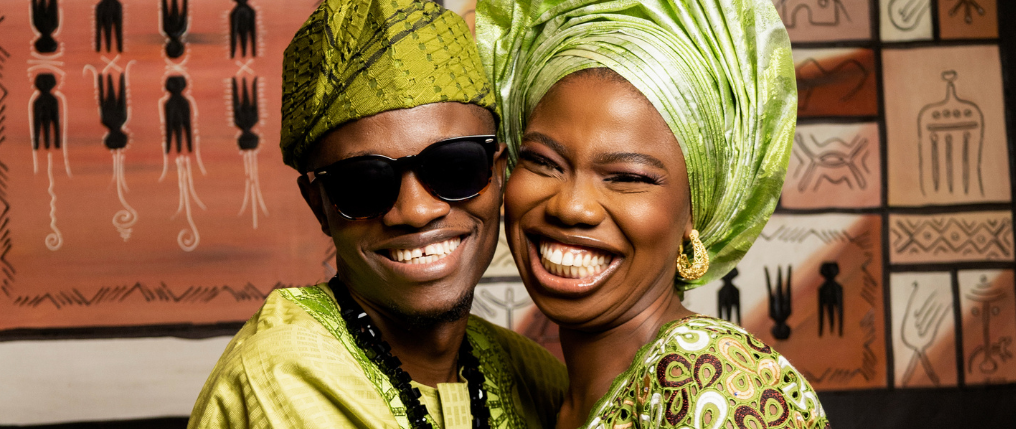
South Asian Culture and Islam
June 29, 2014

A searing critique dispelling misinterpretations of women in Islam amongst cultural practices.
Please tell us a little about yourself.


Looking for your soulmate?
You won’t find your soulmate on this blog post but you might find them on Muzz - the world’s biggest Muslim dating and marriage app.
I was born in Pakistan and came to England with my mother and siblings when I was eight years old. My father was already here in the UK. He had been working at various hospitals as a doctor. When he became settled in one place, Coventry, he called us over to join him. I grew up in Coventry, went to a private high school nearby in Kenilworth and later moved to London for higher education. I married my husband who was already living in London and alhamdulillah we have twochildren.
Much of my studies, as well as the training with the Citizens Advice Bureau, took place after my marriage. I still work for the Bureau as an adviser and also give legal advice at one of the Bureau’s outreaches which takes place at the children’s centre. I think my deeper understanding of Islam really began after my marriage. I met Dr. Majdah Barhamein from Makkah, who was to become one of my very influential Islamic teachers, at a London mosque whist she was giving a talk to a group of young women. After listening to her there and later meeting with her, I became her student for about three years until she returned to Saudi Arabia.
I am a strong believer in education and learning new skills. I think one continues to improve and grow through learning. I believe if you stop learning, you stop growing and are more likely to become stagnant. ‘South Asian Culture and Islam’ is the result of several years of research, masha’Allah.
What were your main reasons for researching and writing the book?
It was in the duration of sister Majdah’s teachings that I began to realise there was a big difference or should I say discrepancies between the teachings of the Middle Eastern scholars and our own elders. I was hearing stories from various friends and acquaintances either about their own personal experiences or stories of others they knew that were undergoing miserable relationships with their spouses, simply because of external pressures from their families or interferences by living within ajoint family system. Some ended in a divorce and some were living miserable lives with their spouses but didn’t divorce for the sake of the children. Alhamdulillah I felt that I had the resources to travel, research and possibly write a book that differentiates the oppressive South Asian cultural practices from Islamic principles.
Although the book focuses upon addressing the discrepancies between South Asian culture and Islam, you do also recognise that, in some cases, certain South Asian cultural practises are performed in harmony with Islam and in ways which nurture Muslims.
Can you highlight some positive aspects of South Asian culture?
I think that there is much hospitality in the treatment of one’s guests in South Asian culture and this includes generous offerings of food. The guests are treated well and given great importance. I think the hospitality given to one’s guests can celebrate the positive aspects of the culture.
I also think that the beautiful traditional and cultural dress called shalwar kameeze can look very much in harmony with the Islamic way of dressing because it does not only feel comfortable but can look modest, and yet also appear graceful and elegant.
Towards the end of the book, you recommend the benefits of voluntary work. What are your experiences and what do you particularly value about volunteering?
I think many of us do things voluntarily in our everyday lives such as picking up a friend’s child from school or helping with someone’s shopping. My own personal experiences of volunteering that I can think of are cooking for a sick neighbour, setting up a Sunday School to teach Islamic studies and volunteering to give advice at the Bureau when I was still working there as a trainee. I think what I value most about volunteering is that it is a way of socialising with others whilst doingsomething productive at the same time. You learn new skills, share knowledge and I think it is a great way of making friends.
Masha Allah, you have made a section from the book freely available on your website. Why is that important to you?
The oppressive culture mentioned in the book is a very widespread problem and the internet has a better chance of reaching many parts of the world that the book may never get to or people may not be able to afford to buy the book. And of course passing knowledge is in itself an ongoing charity.
What advice would you give to sisters who are experiencing oppression, or who know of others experiencing oppression?
I think it is important to find someone you are able to trust and with whom you can communicate well. When you are facing oppression it is easy to become depressed and it can be difficult to think outside you own personal situation. So having someone to talk to or even to go for counselling if necessary can be very beneficial to the mental state of an oppressed human being. I think having a good listener and supporter can help you deal with your feelings and emotions. It can further helpyou to see if there is anything you can do to make your situation any different if that is at all possible.
If you know someone that is facing oppression, I think you need to be attentive and be a good listener so that you can try and understand what their needs are. I think it is important not to make a decision for them unless this should be absolutely necessary but rather to show them what their different options might be as well as the pros and cons of each of those options as they may not be able to think clearly for themselves.
And of course the most powerful thing is to make du’a for the oppressed and to encourage the oppressed to also make du’a so that insha Allah she is alleviated from oppression.
What are your du’as for those suffering the adverse effects of un-Islamic South Asian culture?
The suffering can come in all kinds of forms whether it’s physical, verbal or psychological. Unfortunately many horrible things happen to women in South Asia. It can be from acid attacks to becoming tortured and disabled. It is hard to sit here and imagine what those women must go through. To make matters worse, many women are forced to suffer in silence due to the fear of their own lives or because of maintaining family honour or because they simply cannot get any form ofjustice. Often the criminals that carry out such atrocities go unpunished. I think the du’as for the suffering is essential. I would ask Allah (SWT) to give us a good and clear understanding of Islam, the removal of oppressive un-Islamic practices in all its forms and a spread of compassion, justice and peace everywhere.
Amin.
May Allah (SWT) reward author Uzma Hussain and editor Sheikh Ismail Mahgoub with good for bringing the rights of Muslim women into discussion through this accessible book, and may Allah (SWT) guide everyone who reads it to overcome oppressions, to respect themselves and others as pleases Him and to achieve a sound heart. Amin.
The website for the book is http://www.asiancultureislam.co.uk/

